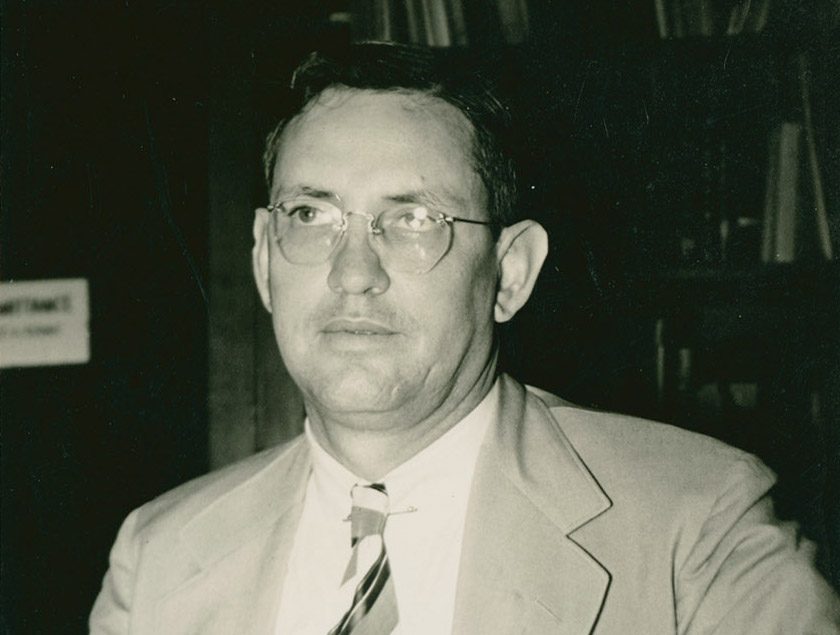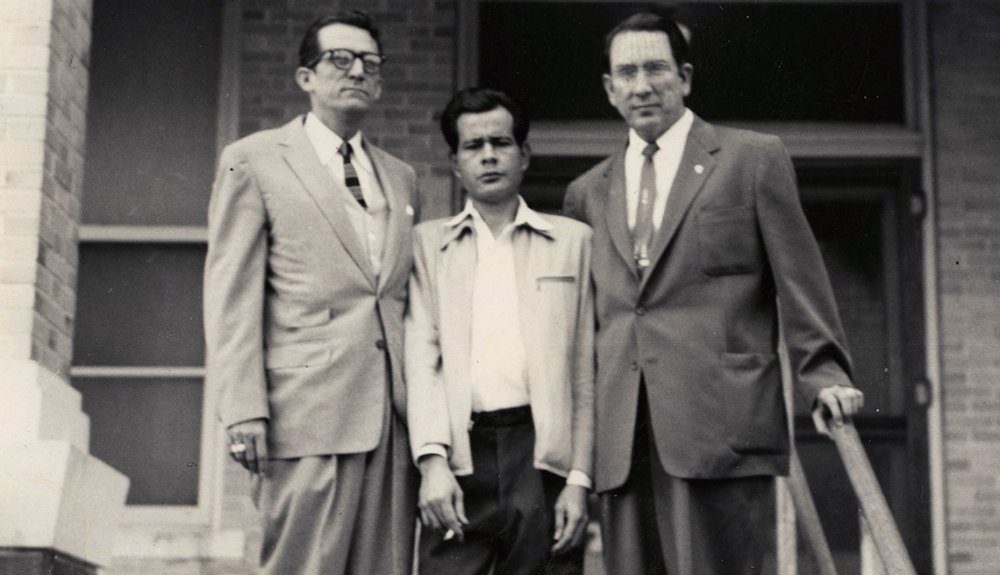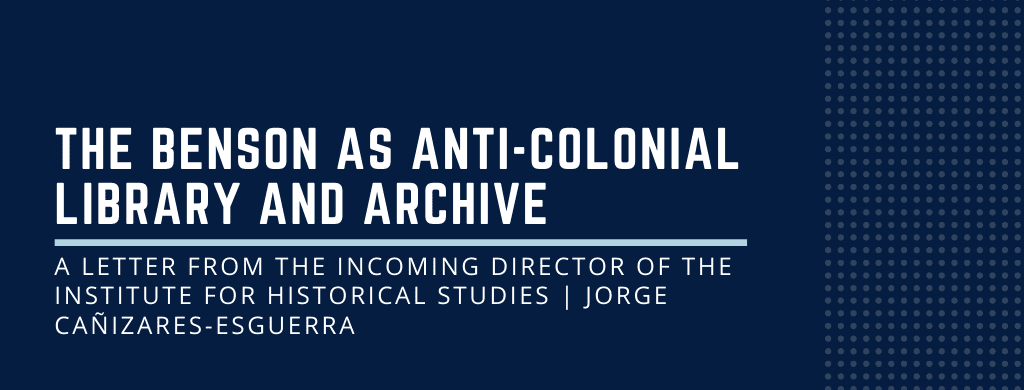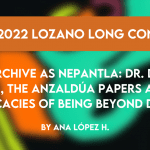I was recently elected as the incoming director of the Institute for Historical Studies at the University of Texas at Austin. One of the projects I have in mind for my first year, 2021-22, is a detailed examination of the Benson and its collections by creating two working groups formed of six graduate students and faculty each, one in the Fall another in the Spring. I am currently reaching out to the Vice Provost of Equity and Diversity, The Graduate School, CIMAS, LLILAS, and COLA for funding for this project. I believe such projects are essential in helping us investigate and understand the racial history of this campus of ours.
The Benson, to cite just one example, hosts the archives of the United League of Latin American Citizens (LULAC) from its very origins in the 1920s.
The United League of Latin Americans Citizens originated largely at UT Austin around figures like Carlos Castañeda. Castañeda was born in Ciudad Camargo, Tamaulipas. He lost both his parents by age 15 before becoming an apprentice at a young age and later the first “Benson” Librarian. LULAC goes to the core of the origins of Tejano-Chicano-Mexican American political mobilization in the state of Texas. It cannot be dissociated from the origins of both Latinx and Latin American Studies. This is the reason why we have the Gloria Anzaldua’s archives and many others.

To honor the centennial of the Benson I believe we need to link it to Latinx-Mexican American Studies and Latin American Studies. Castañeda and LULAC did not separate these two elements of a common “Hispanic” anti-colonial identity, anti-white supremacist identity. In this way, the Benson was born as both an anti-colonial library and an archive.
The Benson originated as an anticolonial initiative of discriminated UT Latinx employees. Castañeda left the “Benson” in protest as the lowest paid member of the staff.[1] He spent his life battling discrimination in schools and the oil fields of Houston. As librarian he put together the first collections of Tejano history not as a history of Latins but as a history of Latin America. His archives were in Coahuila, Saltillo, Nuevo Leon, and Mexico. Many of the original collections of Latinx and Latin American documentations originated with the efforts of Castañeda whose primary scholarship was the edition and translation of primary sources designed to weave the history of Tejanos back into the white supremacist narrative of the Alamo.
His sources were mostly from church archives and his politics were Catholic at time of the Cristero rebellion in Mexico and the expansion of Irish bishops in Tejano dioceses. Castaneda, in the meantime, fought anti-discrimination campaigns in education and the oil fields of Houston.
The origins of the Benson are also linked to the origins of LULAC, namely the Latinx organization that gave us in 1954 Hernandez v Texas, the first time ever Mexicanos born in Texas were considered legally Mexican Americans. LULAC, the United League of Latin American Citizens, drew on Latin American populist notions of citizenship (mestizaje, a citizenship not attached to racial rights) to make its case before the Supreme Court of the United States. Castañeda was one of the founders of LULAC and the main ideologue of Hernandez v Texas was George Sanchez in the School of Education.

The University of Texas at Austin witnessed the creation of the Benson from the bottom up as a response to white supremacy. That is why the Benson has traditionally been underfunded in contrast with similar institutions on campus. The Benson was from its very inception both Latinx and Latin American. The Benson centennial is an invitation for us to rethink the politics of race in this country and on this campus in particular. The Benson has large collections from the Latinx community of Texas that need reevaluation. It is a library created largely from the bottom up and the generous gifts of Lozano Long to LLILAS Benson are part of a tradition of Latinx involvement. And yet, paradoxically, it is also a colonial library in that those collectors brought into Texas many private archives of Catholic Mexicans who had collected colonial and indigenous documents. It also houses dozens of nineteenth century private archives of leading Mexican political families.
This project seeks to balance the contradictions of Latinx and Latin American collecting in Texas but also in the nation as a whole. My proposal is to mobilize undergraduate, graduate students and faculty in an effort to reflect and reconstruct the history of this library, as part of a bottom up call for participation that will lead in turn to the publication of a volume and a wider national reflection. This activity would allow us to recast the Benson as a much more than simply a Latin American Center Library but as a jewel of the history of Latinx in this country that deserves increased autonomy and funding.
[1] Castañeda later returned to the university as an Associate Professor.
Jorge Cañizares-Esguerra is Alice Drysdale Sheffield Professor of History at UT-Austin and the incoming Director of the Institute for Historical Studies.
The views and opinions expressed in this article or video are those of the individual author(s) or presenter(s) and do not necessarily reflect the policy or views of the editors at Not Even Past, the UT Department of History, the University of Texas at Austin, or the UT System Board of Regents. Not Even Past is an online public history magazine rather than a peer-reviewed academic journal. While we make efforts to ensure that factual information in articles was obtained from reliable sources, Not Even Past is not responsible for any errors or omissions.




